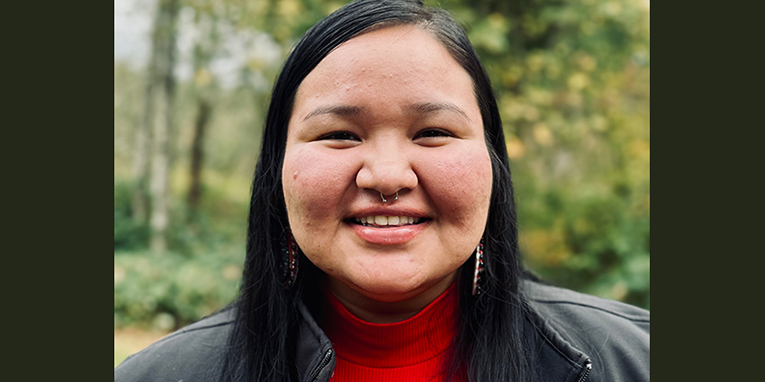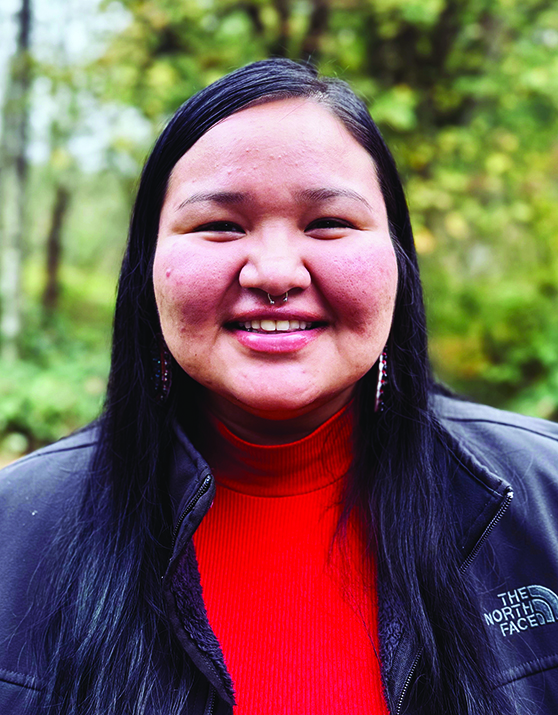
By Kalvin Valdillez, Tulalip News
A new program will soon be available for Tulalip families who are weathering those years of adolescent growing pains and teenage rebellion. A collaboration between Tulalip Family Haven and the Tribal Court, the program focuses on bringing the family unit together to address some of their teen’s actions and misbehaviors, and help right the ship before those real consequences start to kick in.
“When this idea came to the floor at General Council, it was by the parents,” explained Family Haven Manager, Alison Bowen. “They felt that there were a lot of supports for families when things got really bad, but not for families that were trying to resolve issues before it came to the point of being unchangeable. And so, this program is for youth, who are still in the care of their parents or guardians, who are trying to solve a problem and not enter into beda?chelh or the juvenile court system.”
The program is called Youth in Need of Services, or YINS for short. It is open to Tribal families with troubled youth between the ages of 13-17. The youth must be experiencing one of the following issues: has been absent from home for at least 72 hours without consent of parents or guardians, has substance abuse problems with no pending criminal charges related to substance abuse, has excessive unexcused absences or is excessively late to school, is not participating in their education, are beyond the management of their parents/guardians, or their behavior is endangering their own health, safety, or welfare or others around them.

“I am Andrea Coberly. I’m a Quileute tribal member and a Tulalip descendant. I was previously a home liaison at the Quileute tribal school and worked with kids from kindergarten to 12th grade. I have dealt with the juvenile court system and worked on truancy cases and with youth at risk. And I have experience in helping guide the parents and the kids through this process because it can be hard to understand at times. I’m excited to be working here, because in La Push we didn’t have anything like this, and just because of the amount of resources that this Tribe and area can provide for the parents and the kids.”
From their mission statement, Family Haven states, ‘The goal is to not punish youth or their families, but rather to reconcile and work together for the family.’ Alison likened the new program to the successful Family Wellness Court, which is a program where tribal parents follow a personalized plan to regain custody of their children. Upon acceptance into YINS, the family will also follow a plan tailored to their needs and services required. The individualized plans will be developed by the YINS Case Manager, Andrea Coberly, along with courthouse officials. And similar to Family Wellness Court and the Healing to Wellness Court, cultural and community engagement from the family will more than likely be implemented into their plan, depending on the case.
“I can help the parents find resources like therapy, I think that’s a very big one, and the other big one is medical,” Andrea stated. “And we have other resources and other departments and locations that we can refer them to. I will be the mediator, so the parents and kids aren’t going at each other’s necks. And I can help the parents communicate that they just want their kid to do good and succeed. And help the kids realize that what they are doing isn’t okay and it can lead to criminal charges or juvie, and how that can affect their future.”
After Family Haven receives a referral form for the family, they will reach out to them within three business days to schedule an intake meeting. At the initial meeting, Andrea will have the families fill out an intake form, give a complete overview of YINS, schedule a follow-up meeting, and determine if the family meets the qualifications for enrollment into YINS. Andrea also notes that the intake meeting is parent-led, but the kids will have an opportunity to say their piece as well.
Said Andrea, “If we decide it needs to go to the court, then we would file the first petition, which I will be helping the parents through because it is kind of lengthy, and then send it over to the court to get put on the docket. The first [court appearance] is not considered a hearing, it’s more of a conference with the court to develop the plan.”
Alison added, “And then following that, the court will set a date to review the progress of the plan. Did the youth do their part? Did the parents do their part? Were there any barriers? And if so, what can we do to work around those barriers? It’s really to facilitate the process and also try to reduce or shorten the timelines of barriers for the families that are in crisis.”
The team laid out a timeline as they start to roll out the new program to Tulalip’s membership. YINS will officially start meeting with parents and guardians on November 18. On December 2, they will begin the filing process, to get any potential cases on the docket. And the first YINS court hearing will be held on December 5.
For more information, or to refer a Tribal family, you can reach out to Andrea directly at either her desk phone, (360) 716-4342, or her cell phone (360) 913-7357. She can also be contacted through e-mail at ACoberly@TulalipTribes-nsn.gov.
“A big aspect of Native American culture is family,” expressed Andrea. “And separating us ties into that generational trauma of not being able to be with your family. We want to keep the families together and prevent the youth from ending up in beda?chelh, where there might be placement problems and shortages, and they might have to be sent to a different state. It’s important to keep the tribal kids together with their families and connected to their Tribe’s awesome traditions.”